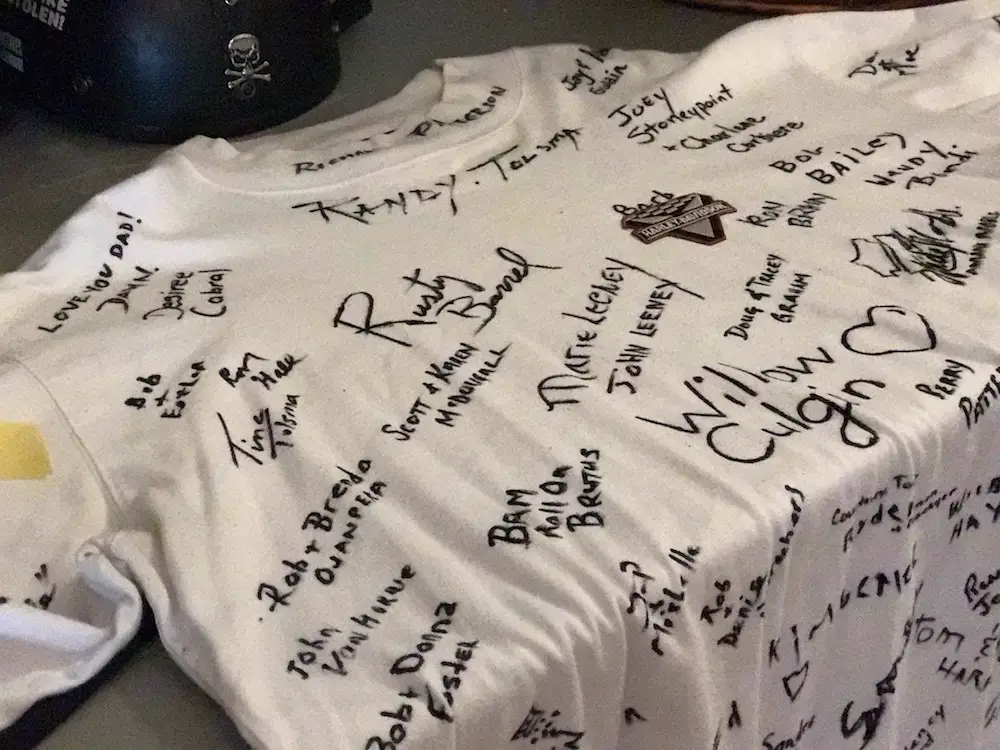Last time I wrote to you I mentioned how likely it is to find a new funeral card on store counters every week or so in the small town where we shop on Manitoulin Island, Canada. A funeral card is a folded piece of paper that tells a very short account of one recently-deceased person’s life, along with details of the upcoming funeral and a photograph of the person. It’s a portable paper obituary, and regardless of what you believe about life and death, one thing is certain. Each and every person described on those cards is in an entirely different situation than they were before their funeral card was placed on the counter at the bank, the drug store or the hardware store. What that “different situation” is doesn’t get much air time in conversations, and that’s probably not a good thing. Do our departed friends and loved ones exist in some other form? Has their consciousness disappeared entirely? Should we be concerned about what lay beyond this life? Can we know anything for certain about the reality after a funeral card? These are pretty big questions – the biggest of all I figure – so it’s probably worth investing at least a little effort coming to an informed opinion. So what can we know about the significance of life and the realities beyond death? More than meets the eye, actually, and not just from the kind of sources you’d normally expect. Questions like these matter a lot because the connect deeply with a yearning most of us have in our hearts.
The T-shirt below was displayed at a prominent funeral I attended in a little town near my place (the town where I see funeral cards). The man was well-loved and lots of people showed it with a Sharpie marker farewell.

Like some people, I was raised going to church every Sunday. And if nothing else, church sets out to answer the big questions of life. But judging by sharply declining attendance at church services across the western world, church may not be connecting people to the answers about life and death and the meaning of it all as well as it used to. Many people have the feeling that our culture has done the church thing, it doesn’t really fit our modern sensibilities any more, and it’s time to move on to something else – or nothing at all. If you love religion and find that it does, in fact, answer life’s biggest questions, that’s great. I’m glad. I just wish showing up at church did that for more people. Church has changed, and that’s one of the reasons it doesn’t deliver answers about life’s big questions as effectively as it used to. I have my ideas about why church has changed and how, but where do we go from here?
Perhaps a good place to begin looking for answers is with facts that everyone can agree on. In it’s simplest form, there are three starting points that I believe most of us can accept as true. These are quite simple, but please bear with me:
- There is such a thing as people being alive. We can agree on this, right?
- There is such a thing as people dying. This is hard to deny.
- The consciousness of people either goes on in some form outside the body after death, or it disappears entirely. I can’t imagine any alternative, can you?
Do these three points sound like common ground for everyone? Setting aside those few people who believe that all of life is just one big illusion – those folks who say that none of us nor this world is real in any way – I think most of us can agree on the three starting facts I’ve listed above. We’re alive, we eventually die, and our real selves either go on to some other place or they disappear altogether as our brain cells shut down and die. To move beyond these ideas, however, we need to answer one particular question, and this is where disagreements usually set in.
Did an intelligence create us and the universe, or did life and consciousness and love and the chance to haul in a nice catch of fish from a shimmering lake all just happen because of a series of random, unguided, meaningless events unfolding accidentally over billions of years? In other words, is there an intelligent designer of some sort – God if you will – behind the universe? Or is everything just an accident? This is the first important question, and to come to any chance of finding an accurate answer one way or the other, we need more than just opinion and personal experience. We need something more logical to look at. Though it may sound strange, science offers a number of excellent angles from which we can attempt to answer the God question at its most basic level. Science and the big question is where I’ll start next time. I hope you join me.
Click here to read the next instalment: “The Universe, an Atheist & a Pocket Watch”


